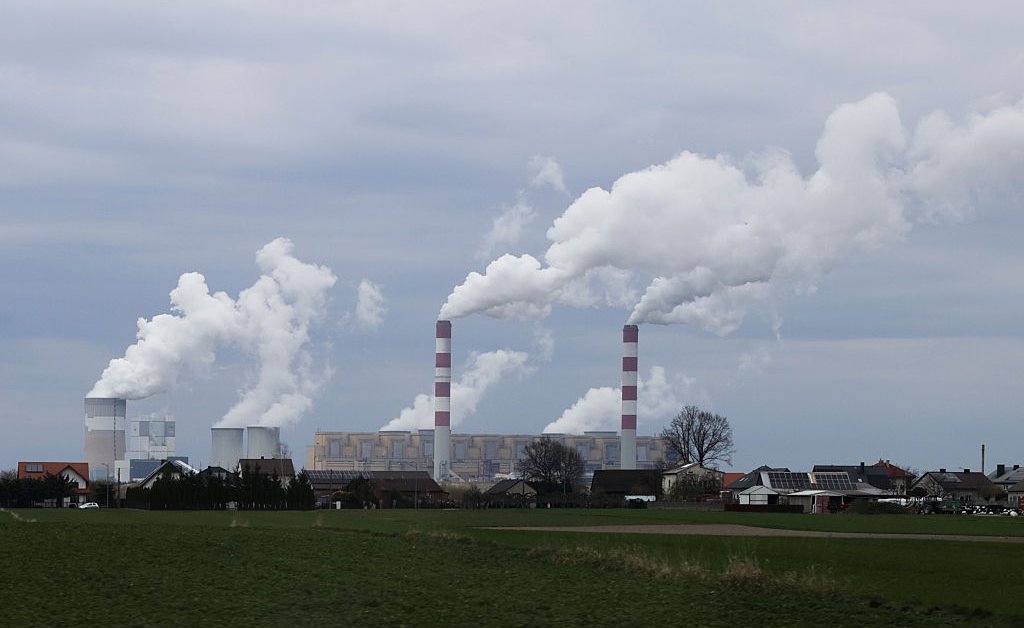Air Pollution's Deadly Toll: How Cutting Emissions Can Save Thousands Of Lives

Welcome to your ultimate source for breaking news, trending updates, and in-depth stories from around the world. Whether it's politics, technology, entertainment, sports, or lifestyle, we bring you real-time updates that keep you informed and ahead of the curve.
Our team works tirelessly to ensure you never miss a moment. From the latest developments in global events to the most talked-about topics on social media, our news platform is designed to deliver accurate and timely information, all in one place.
Stay in the know and join thousands of readers who trust us for reliable, up-to-date content. Explore our expertly curated articles and dive deeper into the stories that matter to you. Visit Best Website now and be part of the conversation. Don't miss out on the headlines that shape our world!
Table of Contents
Air Pollution's Deadly Toll: How Cutting Emissions Can Save Thousands of Lives
Air pollution is a silent killer, claiming millions of lives annually worldwide. This isn't just a statistic; it's a stark reality impacting communities across the globe, disproportionately affecting vulnerable populations. The World Health Organization (WHO) estimates that 7 million premature deaths are linked to air pollution each year, a figure highlighting the urgent need for effective emission reduction strategies. This article explores the devastating consequences of air pollution and examines how decisive action to cut emissions can significantly improve global health outcomes.
The Grim Reality: Air Pollution's Impact on Mortality
The impact of air pollution extends far beyond respiratory illnesses. Fine particulate matter (PM2.5), a major component of air pollution, penetrates deep into the lungs and even enters the bloodstream, contributing to a range of serious health problems including:
- Cardiovascular diseases: Studies consistently link air pollution exposure to increased risks of heart attacks, strokes, and other cardiovascular ailments. The tiny particles inflame blood vessels, leading to clotting and plaque buildup.
- Respiratory illnesses: Asthma, chronic obstructive pulmonary disease (COPD), and lung cancer are significantly exacerbated by poor air quality. Children and the elderly are particularly vulnerable to these respiratory complications.
- Cancer: Exposure to air pollutants, including carcinogenic substances like benzene and formaldehyde, increases the risk of various cancers, including lung cancer.
- Neurological disorders: Emerging research indicates a correlation between air pollution and an increased risk of neurodegenerative diseases like Alzheimer's and Parkinson's.
Cutting Emissions: A Lifeline for Global Health
The good news is that the solution to this crisis lies within our grasp. By implementing comprehensive strategies to reduce emissions, we can dramatically improve air quality and save countless lives. Key strategies include:
- Transitioning to renewable energy: Shifting away from fossil fuels – coal, oil, and natural gas – towards renewable sources like solar and wind power is crucial. This reduces emissions from power plants, a major contributor to air pollution. Learn more about the benefits of renewable energy [link to a reputable source on renewable energy].
- Improving vehicle emissions standards: Stricter regulations on vehicle emissions, coupled with promoting electric vehicles and public transportation, can significantly improve urban air quality. [Link to an article on electric vehicle adoption].
- Promoting sustainable transportation: Encouraging cycling, walking, and the use of public transportation reduces reliance on private vehicles, contributing to cleaner air in cities.
- Investing in green infrastructure: Planting trees and implementing green spaces helps absorb pollutants, improving air quality in urban areas. [Link to information on urban greening initiatives].
- Strengthening industrial emission controls: Implementing and enforcing stricter regulations on industrial emissions from factories and manufacturing plants is essential.
The Economic Benefits of Clean Air
While the focus is often on health, the economic benefits of reducing air pollution are substantial. Improved public health translates to reduced healthcare costs, increased productivity, and a higher quality of life. Investing in clean air is an investment in a healthier and more prosperous future.
A Call to Action:
The devastating consequences of air pollution demand immediate and concerted action. Governments, industries, and individuals all have a role to play in reducing emissions and safeguarding public health. By embracing sustainable practices and advocating for stronger environmental policies, we can create a healthier and safer world for future generations. Let's work together to breathe easier.

Thank you for visiting our website, your trusted source for the latest updates and in-depth coverage on Air Pollution's Deadly Toll: How Cutting Emissions Can Save Thousands Of Lives. We're committed to keeping you informed with timely and accurate information to meet your curiosity and needs.
If you have any questions, suggestions, or feedback, we'd love to hear from you. Your insights are valuable to us and help us improve to serve you better. Feel free to reach out through our contact page.
Don't forget to bookmark our website and check back regularly for the latest headlines and trending topics. See you next time, and thank you for being part of our growing community!
Featured Posts
-
 Fiery Exchange Trooper Returns To Stand In Karen Read Murder Trial
May 09, 2025
Fiery Exchange Trooper Returns To Stand In Karen Read Murder Trial
May 09, 2025 -
 Pope Franciss Successor Is Cardinal Luis Antonio Gokim Tagle The Frontrunner
May 09, 2025
Pope Franciss Successor Is Cardinal Luis Antonio Gokim Tagle The Frontrunner
May 09, 2025 -
 Putins Red Square Parade Three Key Takeaways
May 09, 2025
Putins Red Square Parade Three Key Takeaways
May 09, 2025 -
 The Cinematic Journey Of Celine Song From Relationships To Past Lives
May 09, 2025
The Cinematic Journey Of Celine Song From Relationships To Past Lives
May 09, 2025 -
 The Papal Conclave Examining Cardinal Tagles Chances Of Election
May 09, 2025
The Papal Conclave Examining Cardinal Tagles Chances Of Election
May 09, 2025
